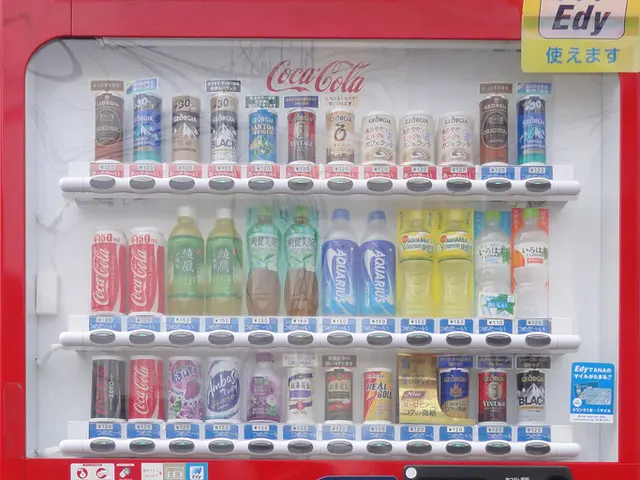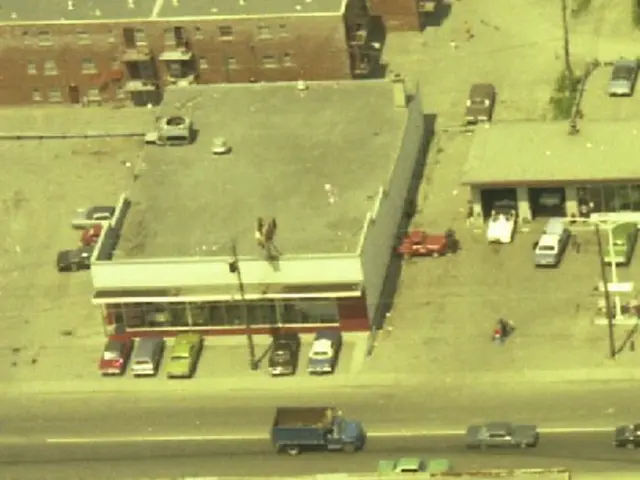Managing bridges taking action against traffic disarray
In North Rhine-Westphalia (NRW), a critical challenge lies in the aging infrastructure, particularly the Kaiserberg Interchange on the A 42 in the Ruhr region. This interchange, like many bridges in the area, is nearing the end of its design life, contributing to significant traffic disruptions and jams due to the high volume of transit.
Currently, the Kaiserberg Interchange and other bridges in the Ruhr area have been identified as structurally deficient, leading to ongoing traffic jams and closures due to repair work or safety-related restrictions. The situation is part of a broader issue, with Germany acknowledging a considerable backlog in bridge maintenance and repair—estimated in the thousands of structures needing attention nationwide.
To tackle this challenge, several solutions and actions are being proposed and implemented. These include increased funding and investment, the use of advanced monitoring technologies, phased repair and reconstruction plans, exploration of new materials and techniques, traffic management enhancements, and long-term infrastructure planning.
The German federal government and North Rhine-Westphalia have increased budget allocations for road and bridge maintenance to accelerate repairs. Special funds have been earmarked to address the most critical bottlenecks like the Kaiserberg Interchange. To better manage and prioritize repairs, advanced structural health monitoring systems and digital assessments are increasingly employed to track bridge conditions in real-time, allowing for more targeted interventions.
For major interchanges like Kaiserberg, phased construction efforts aim to balance ongoing traffic demands with urgent repairs. This minimizes complete shutdowns and distributes repair work over longer periods. The use of modern materials (e.g., high-performance concrete, corrosion-resistant steel) and innovative construction methods (such as modular bridge components) helps speed up repairs and extend the lifespan of rehabilitated structures.
Improved traffic flow strategies, including better detours, real-time traffic information, and coordinated work schedules, aim to reduce congestion during repair works. Integration of bridge repair programs into wider transport and urban planning efforts ensures that solutions consider future traffic growth and environmental sustainability.
However, resolving the backlog remains a multi-year process requiring continued commitment from regional and federal authorities. Parliamentarians Freddy Cordes and Sonja Bongers have expressed concern about the bridge issue in NRW, suggesting the appointment of a bridge commissioner for long-term planning, coordination, and communication. They also propose a 'Master Plan Bridges' and a priority list for emergencies to address the bridge issues in NRW.
Both parliamentarians agree that protecting residents is crucial during bridge closures and detours. They suggest that future bridge closures should not be routed through municipal roads. In light of the pressing need for solutions, the population and the economy in NRW expect a focus on addressing the bridge problems rather than turf wars. Detours via the higher-level road network (A2 and A40) should be considered for future bridge closures on the A42.
- The aging infrastructure in North Rhine-Westphalia (NRW) extends beyond the Kaiserberg Interchange, affecting various industries such as finance, transportation, and politics, due to the potential economic impact and daily commute disruptions.
- In an effort to address the backlog of bridge maintenance and repair nationwide, Germany is exploring numerous solutions, including increased funding from both the federal government and regional authorities, the implementation of advanced monitoring technologies, and the adoption of innovative construction materials and techniques.
- As part of their long-term infrastructure planning, parliamentarians Freddy Cordes and Sonja Bongers have proposed the appointment of a bridge commissioner to coordinate and communicate bridge-related matters, as well as the development of a 'Master Plan Bridges' and a priority list for emergencies in response to the critical bridge issues in NRW.




